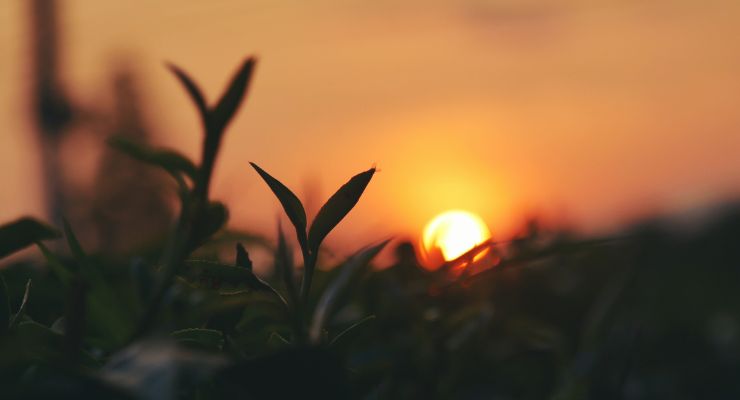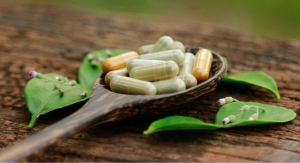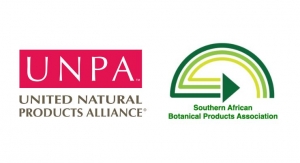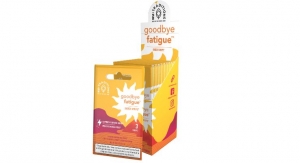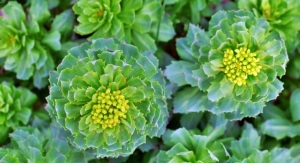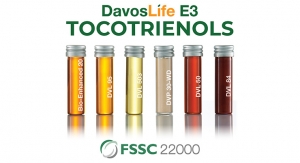03.18.24
Facilitated by the Sustainable Herbs Program, a group of member companies will collaborate to establish data on greenhouse gas emissions associated with the agricultural production of herbs.
The companies include Banyan Botanicals, Nature’s Sunshine, Pure Synergy, Pukka Tea, Traditional Medicinals, Pacific Botanicals, and Yogi.
The coalition, known as the Scope 3 Herbal Footprinting Working Group, debuted March 12, at Natural Products Expo West’s dedicated Climate Day during a speaker panel titled “Navigating Scope 3 Data Challenges Through Collaboration,” which highlighted the advantages of industry competitors working together to improve environmental sustainability.
“Ayurvedic principles teach us that we are nature and our health is intimately connected to the health of the planet. What we do to the planet, we do to ourselves,” said Erin Douglas, senior social and environmental responsibility manager at Banyan Botanicals. “Participating in the working group helps to advance Banyan’s climate work by enabling us to effectively establish an emissions baseline for our top herbal ingredients. Together, we are working to benefit our industry, plants, and planet.”
Calculating Scope 3 emissions, classified as activities within an organization’s supply chain not directly controlled by the organization, poses several unique challenges. When compared to commodity crops like wheat, footprinting herbal ingredients is difficult to navigate due to outcomes from a diverse range of herbs, variability in production methods, and the absence of readily available CO2 emissions data that is essential for determining a company’s carbon footprint.
Conducting a single herbal emissions footprint can be cost-prohibitive. By pooling resources and enlisting the consultant group Sustainable Ag, the working group aims to gather primary data for over 20 priority herbs, including ashwagandha. This initiative also serves the broader goal of creating an accessible, scalable, and standardized model for measuring herbal emissions across the industry.
Climate change is already impacting the growth cycles and yields of herbs. Agriculture accounts for approximately a quarter of global emissions, making it a significant driver of climate change and offering one of the most potent avenues for mitigation.
“The climate crisis is changing how we work together,” said Ann Armbrecht, founder and director of the Sustainable Herbs Program. “These seven companies coming together to share emissions data will benefit not only their bottom line but also their farm partners, consumers, the herbal industry, and the environment.”
Once the initial herbal emissions are measured, the Scope 3 Herbal Footprinting Working Group plans to continue to collaborate around in-set projects at the farm level, which lowers the actual carbon emissions a company produces and reduces the climate impacts of herbal ingredients. The group expects to begin publishing a white paper with preliminary results in late 2024.
The companies include Banyan Botanicals, Nature’s Sunshine, Pure Synergy, Pukka Tea, Traditional Medicinals, Pacific Botanicals, and Yogi.
The coalition, known as the Scope 3 Herbal Footprinting Working Group, debuted March 12, at Natural Products Expo West’s dedicated Climate Day during a speaker panel titled “Navigating Scope 3 Data Challenges Through Collaboration,” which highlighted the advantages of industry competitors working together to improve environmental sustainability.
“Ayurvedic principles teach us that we are nature and our health is intimately connected to the health of the planet. What we do to the planet, we do to ourselves,” said Erin Douglas, senior social and environmental responsibility manager at Banyan Botanicals. “Participating in the working group helps to advance Banyan’s climate work by enabling us to effectively establish an emissions baseline for our top herbal ingredients. Together, we are working to benefit our industry, plants, and planet.”
Calculating Scope 3 emissions, classified as activities within an organization’s supply chain not directly controlled by the organization, poses several unique challenges. When compared to commodity crops like wheat, footprinting herbal ingredients is difficult to navigate due to outcomes from a diverse range of herbs, variability in production methods, and the absence of readily available CO2 emissions data that is essential for determining a company’s carbon footprint.
Conducting a single herbal emissions footprint can be cost-prohibitive. By pooling resources and enlisting the consultant group Sustainable Ag, the working group aims to gather primary data for over 20 priority herbs, including ashwagandha. This initiative also serves the broader goal of creating an accessible, scalable, and standardized model for measuring herbal emissions across the industry.
Climate change is already impacting the growth cycles and yields of herbs. Agriculture accounts for approximately a quarter of global emissions, making it a significant driver of climate change and offering one of the most potent avenues for mitigation.
“The climate crisis is changing how we work together,” said Ann Armbrecht, founder and director of the Sustainable Herbs Program. “These seven companies coming together to share emissions data will benefit not only their bottom line but also their farm partners, consumers, the herbal industry, and the environment.”
Once the initial herbal emissions are measured, the Scope 3 Herbal Footprinting Working Group plans to continue to collaborate around in-set projects at the farm level, which lowers the actual carbon emissions a company produces and reduces the climate impacts of herbal ingredients. The group expects to begin publishing a white paper with preliminary results in late 2024.

